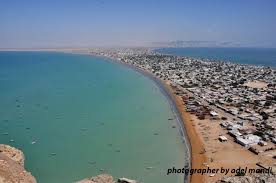
AFTER ages, there is a note of jubilation in the discussions on the future of Balochistan. Till about a year ago, many were convinced it didn’t even have a future.
The change is the nomination of the National Party’s Dr Abdul Malik Baloch as chief minister. He will be the first ever Baloch chief minister not embedded in the structure and from an educated, middle-class background.
His credentials as a guard of the province’s interests are apparent in his growth through the ranks of the Baloch Students Organisation, the earlier leadership of the Balochistan National Movement, the foresight of merging with the National Democratic Party to form the NP, and the issues he unflaggingly raised in the Senate during his term.
Credit is due to Nawaz Sharif for the statesmanship displayed in dealing with the assertive claims to the post made by the leadership of his own party, and placing at the helm someone who was previously a political opponent. It was a potentially fractious, hence bold political decision.
The nawab of Jhalawan, Sanaullah Zehri, showed political maturity in accepting it and standing by the decision after his own strident claims and not quitting in a huff.
Had Sardar Mengal agreed earlier to an electoral alliance with the NP, it would have been the crowning triumph. Since the 2002 elections when Gen Musharraf’s regime ushered the Muttahida Majlis-i-Amal into power, the Baloch nationalist groups have been on the defensive and outside the electoral fold.
The rising power of the religio-political alliance was at the cost of the nationalists. Their return to the electoral fold under a non-tribal steered leadership is significant.
This should have been the PPP’s moment. But the party squandered it in the same manner it did many others, by first showing long-term vision and making important structural changes, but then offsetting these with immediate-term governance disasters.
Dr Malik’s present nomination would have been a symbolic but politically ineffectual change of face had it not been preceded by the 18th Amendment and the consensually reformulated NFC award. It is devolution of powers and substantive budgets that will give this government political potency.
In that sense, the PPP paved the way for this historic opportunity, but negated its own potential by putting forward the inept nawab of Sarawan, Aslam Raisani, as its chief minister and the party’s political face in the province.
This will remain as the outgoing government’s imprint, not President Asif Zardari’s apology to the Baloch people for historic grievances, and not the unimplemented but well-crafted Aghaaz-i-Haqooq-i-Balochistan package.
Dr Malik now has the democratic mandate to rule, the support and goodwill of the central government, significant fiscal space and financial resources for development via devolution, the ability to take and execute decisions affecting the province, and the credibility to do so.
The proverbial spanner, or in this case, slammer in the works could be the role of the security establishment. The numbers of enforced disappearances attributed to the state vary wildly, with the outgoing home minister citing 55 and the Voice of the Baloch Missing Persons organisation saying 13,000, whereas former interior minister Rehman Malik acknowledged there to be 1,100.
Whatever the realistic count, the effect this practice has had has eclipsed Baloch narratives and produced immense hostility, fear and insecurity to the point that even those who disagree with the tactics of the sarmachar (as the nationalist armed fighters are called), concede that breaking away may be the only survival option.
Continued forced disappearances and recovery of tortured dead bodies as seen over the past five years, would invalidate any perceived forward steps and reassert the image of a predatory and repressive establishment.
There are signs that there may be a change in this policy as well. The Frontier Corps remain the most reviled of state institutions in Balochistan, along with the proxy death squads attributed to them.
Yet in post-election interviews, people I spoke to say there was no explicit or implicit coercion to vote for any particular candidate or party by the security apparatus. If anything, they say they were compelled by the sarmachar not to vote.
While the voter turnout remained relatively low, there was no evident political intrusion by state agencies. According to some people’s accounts, while dumped bodies are still being found, there has been a decline in the number of ‘new disappearances’ over the past few months.
This cannot be verified because the disappearances are not recorded, as when they happen the police refuse to register FIRs against the FC or security agencies and the media often blocks out such news.
For the new government to have a chance at healing wounds and ruptures with the state, it is imperative that the political victimisation and kill-and-dump policy halts.
Without this, no change is possible and Balochistan will remain poised on the brink.
Even if disappearances do end, it will not resolve all the problems. As in any conflict zone, the general law and order breakdown has led to a phenomenal increase in crime such as kidnappings for ransom and a near-complete collapse of the provincial economy.
This doesn’t even begin to touch upon the Hazara killings crisis and the impunity with which the Lashkar-i-Jhangvi has been able to operate.
The incoming government has to also panic about the Ahle Sunnat Wal Jamaat, the political face of the Lashkar-i-Jhangvi being able to poll over 20,000 votes for the National Assembly from within Quetta city under the umbrella of the Muttahida Deeni Mahaz. In others places in the province, people have been able to get elected into parliament with much fewer votes.
However small and incremental a step, the nomination of new leadership has given Balochistan breathing space and a fighting chance that it hasn’t had for a decade.
The writer conducts research and analysis in the social and development sector.

